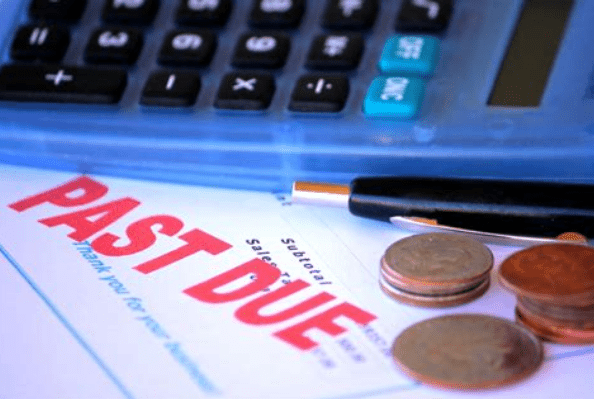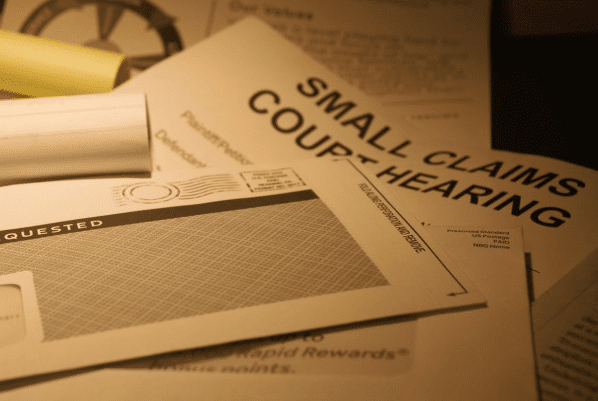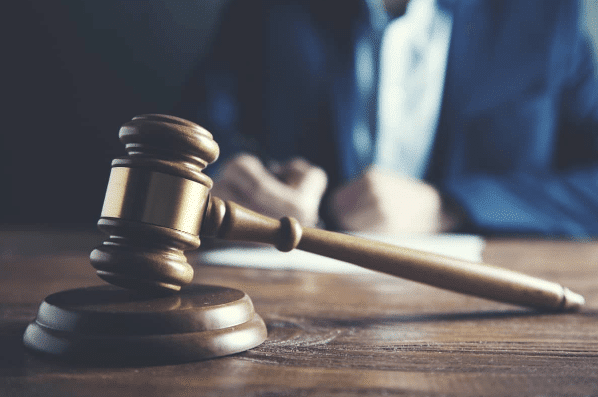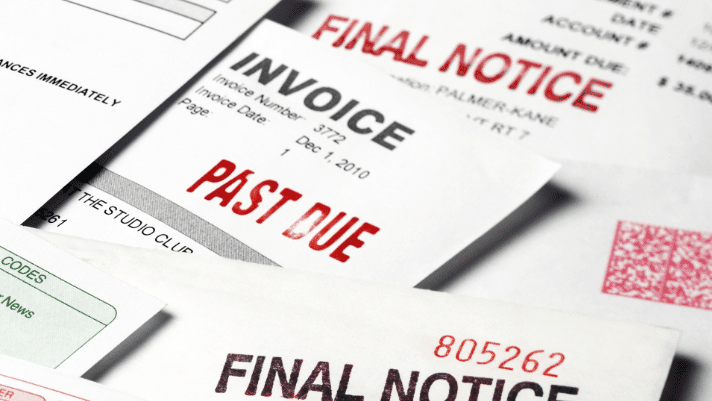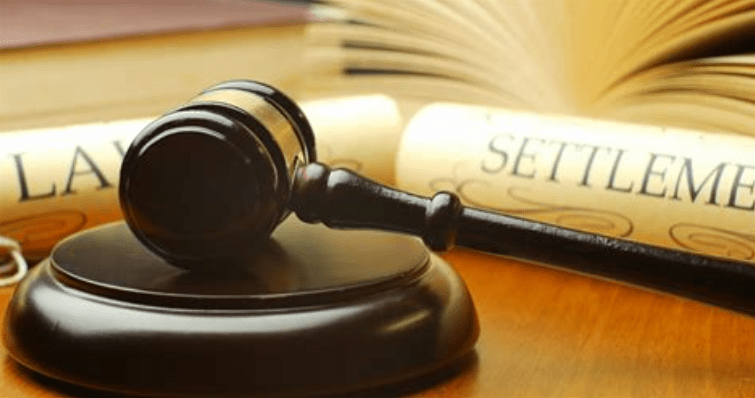In North Carolina, when you’re facing a debt collection lawsuit, time is of the essence. You have 30 days to respond, and the best course of action is to file a written Answer. Asserting your affirmative defenses is crucial in this process. With ZumaZip, you can breeze through this daunting task in just 15 minutes. We’ll guide you through drafting and filing your Answer so you can meet the deadline with ease and confidence. Let ZumaZip lighten the load and empower you to tackle your North Carolina lawsuit head-on.
Facing a debt collection lawsuit can be incredibly stressful, especially when you’re already struggling to manage your bills. Sometimes, despite your best efforts, you simply can’t keep up with all of them, forcing you to make tough decisions about which ones to prioritize. And when that official court document arrives, informing you that you’re being sued, it can feel overwhelming.
If you’ve never been sued before, the prospect of representing yourself in court may seem daunting. Hiring an attorney might not be feasible due to the associated costs, especially if you’re already financially strained. After all, if you had extra funds, you’d likely use them to settle your debt in the first place.
This article aims to alleviate some of that stress by guiding you through the process of responding to a debt collection lawsuit in North Carolina. From understanding the summons to drafting a response, we’re here to help you navigate this challenging situation.
How does a debt lawsuit work in North Carolina?
Receiving a court notice can indeed be frightening, and it’s understandable if you feel overwhelmed. But it’s crucial to recognize that this is precisely the response your creditor hopes to elicit. If they file a debt collection lawsuit in North Carolina and you fail to respond within the specified timeframe, they automatically win.
The creditor, or plaintiff, will obtain what’s known as a “default judgment” from the Court, effectively granting them victory by default. Without your defense, this judgment will likely reflect the amount they claim you owe. Even more concerning, armed with this court order, the creditor gains the authority to garnish your wages, tax refund, or even your bank account, exacerbating your financial woes.
Now that you understand the gravity of the situation and the tactics employed by your creditor to dissuade you from responding, it’s time to reclaim control. In the following sections, we’ll delve into how to effectively respond to a debt collection summons in North Carolina, providing you with pertinent details, deadlines, and necessary forms to mount your defense.
You have 30 days to respond to a debt collection summons in North Carolina
North Carolina Rules of Civil Procedure Rule 12(a) states:
“(1) When Presented. – A defendant shall serve his answer within 30 days after service of the summons and complaint upon him.”
This means that, in North Carolina, you have 30 days to file an Answer with the court after being served with a Summons and Complaint.
Let’s take a quick step back and Answer some basic questions, like what is a civil Summons in North Carolina? The “Summons and Complaint” refers to the written documents you receive that begin a lawsuit.
The Summons is the official notification of the lawsuit that outlines the parties involved, the court venue, and other basic information. The Complaint, on the other hands, lists all the specific claims that are being made against you.
Being “served” refers to how you receive the initial legal documents, likely either in person or by mail. There will be a signed certificate of service in the paperwork you receive that will tell you when the clock starts for your reply. The reply by the defendant to the complaint is also referred to as an “Answer.”
Again, you have only 30 days to create and file your Answer with the court in North Carolina.
There are a few important details to keep in mind here.
- These deadlines are strict and will be enforced.
- The clock begins as soon as you are served.
- The 30 day response period can include days that the Court is not open, like weekends or holidays. If the 30th day falls on a date that the Court is closed, you will have until the next business day to file your Answer. It’s best not to cut it this close.
There might be an option to request an extension to file your Answer which can vary by location. If you do miss the deadline entirely there could be an opportunity to ask the Court to set aside a default judgment and allow you a chance to respond, but these are only granted rarely, if ever. Knowing your deadlines and filing your response within that time frame is perhaps the most important defense that you can offer under North Carolina debt collection laws.
Use these North Carolina Answer to Summons Forms
The easiest way to draft and file an Answer to your North Carolina debt collection lawsuit is to use ZumaZip’s Answer form. ZumaZip’s software allows you to create an Answer that is customized to your case, in the proper format, with the proper legal wording. All you have to do is respond to a few simple questions.
Additionally, we’ll have an attorney review and file the completed documents, so you can rest assured that all the details and deadlines have been followed to the letter.
Check to see if this form will work for you with this sample Answer form.
The court system in North Carolina does not offer a blank template form for your Answer in a debt collection lawsuit. However, you can find North Carolina specific instructions for drafting your response and a sample Answer to follow.
Follow these steps to respond to a debt collection case in North Carolina
Here’s a detailed guide on how to respond to a debt collection lawsuit in North Carolina:
- Answer each issue of the Complaint: The Complaint outlines the claims against you. Carefully address each allegation in your response, either admitting or denying them.
- Assert your affirmative defenses: In addition to responding to the claims, assert any affirmative defenses you may have. These are legal reasons why the plaintiff’s claims should be dismissed or reduced. Common affirmative defenses include expiration of the statute of limitations, failure to state a claim, and lack of standing.
- File the Answer document with the court: Prepare your Answer document, ensuring it follows North Carolina-specific instructions and formatting requirements. File the Answer with the court within the 30-day timeframe from when you were served with the Summons and Complaint. Additionally, serve a copy of the Answer on the opposing party.
Remember to keep a copy of your Answer for your records and for use during the court proceedings. Complete a certificate of service, indicating the date you intend to mail a copy of the Answer to the opposing party, and sign it.
By following these steps diligently, you can effectively respond to the debt collection lawsuit and protect your rights in the legal process.
Now, let’s look at each step in detail.
1. Answer each issue of the Complaint.
Next, you need to answer the complaint.
You can do so in a few different ways. First, you can offer a “general denial,” which is a tactic often used by attorneys because it places the burden of proof for everything contained in the Complaint on the plaintiff. More commonly, however, it’s best to respond to each numbered paragraph separately. Your response can be as simple as one of the following:
- Admit
- Deny
- Deny due to lack of knowledge
ZumaZip helps you respond the right way.
Choose the appropriate response and write it in your Answer, making certain that you are properly listing the corresponding paragraph number. It’s important to be brief, yet truthful in your responses as they can be determined to be an admission of facts.
When you deny a claim, it’s kind of like saying, “Prove it.” If the plaintiff doesn’t have enough evidence to prove each claim that you deny, they might just throw out the case entirely. This is why many attorneys recommend denying as many claims as possible.
That being said, there is no harm in admitting to facts that are true, such as your name and address. You can admit with an explanation if you feel that is necessary. It’s also fine to admit in part and deny in part if some of the numbered paragraph is true but not all of it. You can also refer to and attach documents as exhibits if you have any that are relevant to this matter.
2. Assert your affirmative defenses
The next part is where you can assert your argument by using any of a number of “affirmative defenses.” Affirmative defenses are claims that you can assert to show why the plaintiff does not have a case against you. You can list any affirmative defenses that apply in your response.
Common affirmative defenses can include the following:
- The account listed in the complaint is not yours. Perhaps the account number listed in the complaint is not the same as yours. Or perhaps you have been the victim of identity theft and someone else took out this debt illegally in your name. In this scenario, you might have documentation that is helpful to your defense, such as a statement for your account listing a different account number or name, or a police report you filed because of identity theft.
- You have already paid off the debt. Having already paid off a debt is an excellent defense. Whether you paid it off in full or came to an agreement with your creditor to accept a lower amount in full satisfaction of the debt, paid is paid. Here again, documentation can be very helpful to attach as exhibits to your Answer.
- You disagree with the amount of debt listed in the complaint. This could very well be a legitimate debt that you owed that grew over time to an amount that you believe to now be excessive. Here perhaps a satisfactory resolution to the lawsuit would be coming to an agreement with your creditor for an amount that you can reasonably repay and a payment plan you can follow.
- The debt was discharged in a bankruptcy. If you have previously filed for bankruptcy and included this debt in your case that successfully received a discharge, then the debt is no longer your obligation.
- The North Carolina debt collection statute of limitations has expired. A statute of limitations is a length of time that a debt collector has to legally come after you to pay a debt. Once that time has expired, they can no longer seek to collect through the courts.
- You do not have enough information to confirm that the plaintiff holds the debt. This is a very common scenario as many creditors make a practice to sell off their uncollected debt for pennies on the dollar after a period of non-payment (usually a minimum of 90 days) to debt collection agencies. These agencies don’t always verify that the debts are valid, haven’t been discharged in a bankruptcy case, or have the correct information. Since they often purchase uncollected debts in bulk it can be difficult, if not impossible, for them to prove that they truly own a debt with a verifiable paper trail.
These are just a few of the many possible affirmative defenses that you can assert in your Answer. It’s important to note, however, that inability to pay is not a legal defense to this action.
Rule 8(c) of North Carolina Rules of Civil Procedure states:
“Affirmative defenses. – In pleading to a preceding pleading, a party shall set forth affirmatively accord and satisfaction, arbitration and award, assumption of risk, contributory negligence, discharge in bankruptcy, duress, estoppel, failure of consideration, fraud, illegality, injury by fellow servant, laches, license, payment, release, res judicata, statute of frauds, statute of limitations, truth in actions for defamation, usury, waiver, and any other matter constituting an avoidance or affirmative defense. Such pleading shall contain a short and plain statement of any matter constituting an avoidance or affirmative defense sufficiently particular to give the court and the parties notice of the transactions, occurrences, or series of transactions or occurrences, intended to be proved.”
These are the legal terms used for affirmative defenses. ZumaZip simplifies the language for you by asking you some questions about your case and translating your answers into the proper legal wording.
Make the right defense the right way with ZumaZip.
There is also an opportunity to list any counterclaims if you believe you have additional claims against the plaintiff. This may come up if the creditor has violated the North Carolina Fair Debt Collection Practices Act or the North Carolina Debt Collection Act in their collection actions. Filing any counterclaims can make your response much more complicated and is probably best done with an attorney’s assistance.
3. File the Answer document with the court, and serve the opposing party with a copy
After you’ve put in the time and effort to draft your Answer you will need to file it with the court and serve it on the plaintiff’s attorney, which has to be done in a particular way.
Don’t have a printer? ZumaZip can take care of all the filing details for you.
Make certain that you also fill out a certificate of service with the date on it that you intend to mail out a copy to the opposing side and sign it. You’ll need to do so within that 30 day time period, otherwise all the hard work you’ve put in already will go to waste.
To complete this final step of filing your Answer, you will need to do the following:
- Print at least two copies of your Answer
- Mail one copy to the court
- Mail the other copy to the plaintiff’s attorney.
It’s always a good idea to print an additional copy to keep for your own records. It may also prove useful for you to have a copy at your hearing. If you don’t have access to a printer at home or at work you can try your North Carolina public library system or a copy store chain to print your documents for the lowest possible cost. To mail out the copies for the Court and to the plaintiff;s attorney you can use the addresses that are listed in your Summons and Complaint you received in the mail.
Why ZumaZip?
ZumaZip is your ally in combating debt collectors. With our platform, you can seamlessly respond to debt lawsuits, communicate with collectors through letters, and even negotiate settlements.
Our Answer service is a user-friendly web application designed to guide you through the process step by step. By asking all the relevant questions, we ensure that your Answer document is complete and accurate. Once you finish, our team will review your document, and if needed, file it on your behalf.
North Carolina statute of limitations on debt
North Carolina General Statutes § 1-52 outlines the statute of limitations on most types of debt in North Carolina.
North Carolina does not have a single statute of limitations for debt collection, rather it varies depending on what type of debt it is. For example, a mortgage has a statute of limitations of 10 years in North Carolina. On the other hands, the North Carolina statute of limitations on credit card debt and medical debt is only three years.
The table below further outlines the statute of limitations on debt in North Carolina:
| Debt Type | Deadline |
|---|---|
| Credit Card | 3 years |
| Medical | 3 years |
| Student Loan | 3 years |
| Auto Loan | 3 years |
| Personal Loan | 3 years |
| Mortgage | 10 years |
| Judgment | 10 years |
| Source: N.C. Gen. Stat. § 1-47, § 1-52 |
(Check out the different statutes of limitations on debt in all 50 states)
North Carolina Legal Aid Organizations
North Carolina has a number of legal aid organizations, some of which are funded by the government available to assist residents who cannot afford an attorney to help them with legal actions. Here are some:
- Legal Aid of North Carolina
- LawHelpNC
- North Carolina Bar Association Resources for Legal Aid
- Legal Aid of North Carolina Inc
- North Carolina Justice Center
- North Carolina Pro Bono Resource Center
Let’s consider an example.
Example: Willy has a credit card debt, and the last time he made a payment towards the debt was eight years ago. A debt collector tries to sue him for the debt. In this case, the statute of limitations has expired and Willy needs to bring that up as an affirmative defense.
What If I Haven’t Been Sued Yet?
If you’ve only received a collections notice, but not a lawsuit, the best way to respond is with a Debt Validation Letter. When a debt collector contacts you in any way, whether it’s by phone or mail, you can respond with a Debt Validation Letter. This letter notifies the collector that you dispute the debt and requires they provide proof you owe the debt. They can’t call you or continue collecting until they provide validation of the debt. This flowchart shows how you can use a Debt Validation Letter to win.
Get started with a Debt Validation Letter here.
Key Takeaways
So, in short, here’s the review on how to answer a Summons for debt collection in North Carolina.
- Remember that the Deadline for North Carolina is 30 days.
- Use the ZumaZip Answer form to draft and file your response.
- In your Answer, you should respond to each claim listed in the Complaint and assert your affirmative defenses.
- File the Answer with the court before the deadline, and send a copy to the opposing attorney.
- The North Carolina statute of limitations on credit card debt is three years.
- There are several North Carolina legal aid organizations that can assist you with your lawsuit.
What is ZumaZip?
ZumaZip is a convenient solution designed to streamline your response to a debt collection lawsuit. Here’s a breakdown of what you can expect when you use ZumaZip:
Firstly, you’ll access our user-friendly web application, which guides you through the process step by step. You’ll be prompted to answer a series of questions related to your specific situation. Once you’ve completed the questionnaire, you have the option to either print out the finalized forms and mail them to the appropriate courts yourself, or you can opt to utilize ZumaZip’s services to file them on your behalf. Additionally, if you choose this option, an attorney will review your document for added peace of mind.
If you’re seeking guidance on how to effectively respond to a debt collection lawsuit, ZumaZip can provide the assistance you need. Feel free to explore our FAQs for more information on what ZumaZip has to offer.
What if I haven’t been sued yet?
If you’ve only received a collections notice, but not a lawsuit, the best way to respond is with a Debt Validation Letter. When a debt collector contacts you in any way, whether it’s by phone or mail, you can respond by formally requesting a debt validation with a Debt Validation Letter . This letter notifies the collector that you dispute the debt and forces them to provide proof you owe the debt. They can’t call you or continue collecting until they provide validation of the debt. This flowchart shows how you can use a Debt Validation Letter to win.
Get started with a Debt Validation Letter here.
How to Answer a Summons for debt collection in all 50 states
Here’s a list of guides on how to respond to a debt collection lawsuit in each state:
- Alabama
- Alaska
- Arizona
- Arkansas
- California
- Colorado
- Connecticut
- Delaware
- Florida
- Georgia
- Hawaii
- Idaho
- Illinois
- Indiana
- Iowa
- Kansas
- Kentucky
- Louisiana
- Maine
- Maryland
- Massachusetts
- Michigan
- Minnesota
- Mississippi
- Missouri
- Montana
- Nebraska
- Nevada
- New Hampshire
- New Jersey
- New Mexico
- New York
- North Carolina
- North Dakota
- Ohio
- Oklahoma
- Oregon
- Pennsylvania
- Rhode Island
- South Carolina
- South Dakota
- Tennessee
- Texas
- Utah
- Vermont; Vermont (Small Claims court)
- Virginia
- Washington
- West Virginia
- Wisconsin
- Wyoming
Guides on how to beat every debt collector
Hey there! Facing off against a debt collector can feel like a daunting challenge, but fear not! We’re here to help you navigate through it all with our handy guides designed to assist you in beating every debt collector you encounter. Whether you’re facing a new lawsuit or dealing with a persistent collector, we’ve got your back. Stay positive, stay informed, and let’s tackle this together!
- Absolute Resolutions Investments LLC
- Accredited Collection Services
- Alliance One
- Amcol Clmbia
- American Recovery Service
- Asset Acceptance LLC
- Asset Recovery Solutions
- Associated Credit Services
- Autovest LLC
- Cach LLC
- Cavalry SPV I LLC
- Cerastes LLC
- Colinfobur
- Covington Credit
- Crown Asset Management
- CTC Debt Collector
- Cypress Financial Recoveries
- Delanor Kemper & Associates
- Eagle Loan of Ohio
- Educap
- Estate Information Services
- FIA Card Services
- Forster & Garbus
- Freshview Solutions
- Fulton Friedman & Gullace LLP
- Harvest Credit Management
- Howard Lee Schiff
- Hudson & Keyse LLC
- Integras Capital Recovery LLC
- Javitch Block
- Jefferson Capital Systems LLC
- LVNV Funding
- Mannbracken
- Mariner Finance
- Medicredit
- Michael J Adams PC
- Michael J Scott
- Midland Funding LLC
- Mullooly, Jeffrey, Rooney & Flynn
- Mountain Land Collections
- MRS Associates
- National Collegiate Trust
- Nationstar Foreclosure
- Northstar Capital Acquisition
- NCEP LLC
- NRC Collection Agency
- OneMain Financial
- Palisades Collection LLC
- Pallida LLC
- Paragon Revenue Group
- Pinnacle Collections Agency
- PMAB LLC
- Portfolio Recovery Associates
- Provest Law
- PYOD LLC
- Reunion Student Loan Finance Corporation
- Revenue Group
- Regents and Associates
- RSIEH
- Salander Enterprises LLC
- Second Round Sub LLC
- Security Credit Services
- Sherman Financial Group
- Suttell and Hammer
- T-Mobile
- Transworld Systems
- Tulsa Teachers Credit Union
- UCB Collection
- Velo Law Office
- Velocity Investments
- Waypoint Resource Group
- Weinberg and Associates
- Wolpoff & Abramson
Settle your medical debt
Having a health challenge is stressful, but dealing medical debt on top of it is overwhelming. Here are some resources on how to manage medical debt.
- Am I Responsible for My Spouse’s Medical Debt?
- Do I Need a Lawyer for Medical Bills?
- Do I Need a Lawyer to Fight Medical Bill Debt?
- Does Bankruptcy Clear Medical Debt?
- How Much Do Collection Agencies Pay for Medical Debt?
- How to Find Medical Debt Forgiveness Programs
- Is There a Statute of Limitations on Medical Bills?
- Medical Debt Statute of Limitations by State
- Summoned to Court for Medical Bills — What Do I Do?
- Summoned to Court for Medical Bills? What to Do Next
Stop calls from Debt Collectors
Do you keep getting calls from an unknown number, only to realize that it’s a debt collector on the other line? If you’ve been called by any of the following numbers, chances are you have collectors coming after you, and we’ll tell you how to stop them.


























